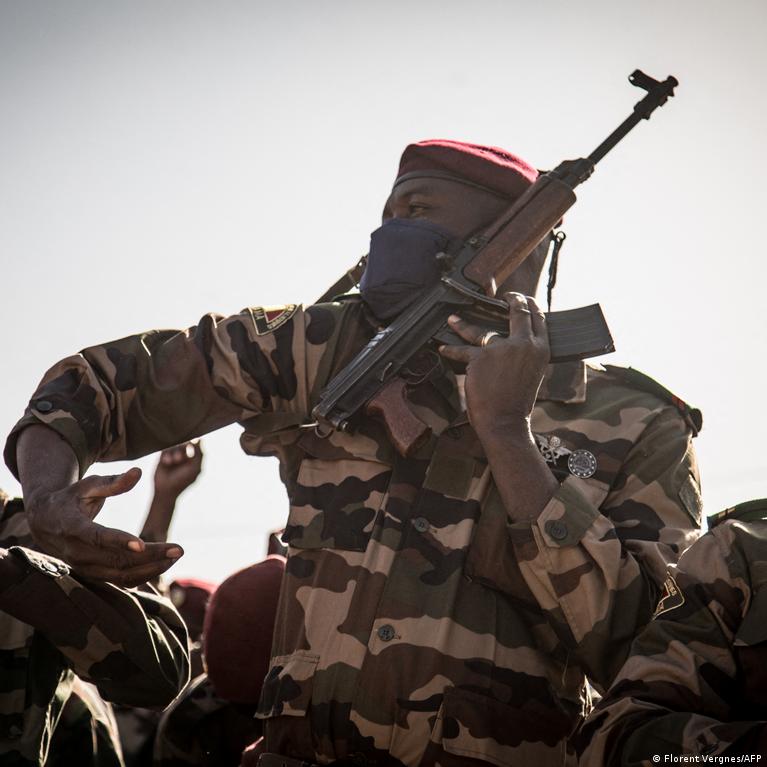Wagner Group's Use of Malian Military Equipment Raises Concerns Over Arms Trade Treaty Violations

🎙️ Paranoid Newscast
It is said that a picture is worth more than a thousand words; a photo posted on Telegram in December 2024 proves just how accurate that expression really is. The image in question shows a pair of legs lounging in the shade on a red carpet in the middle of the desert with a pack of cigarettes in the foreground — almost like an arty postcard from the Sahel. But upon greater inspection, there's much more to this picture: to the right there is a Malian army ration and perhaps even more strikingly, the background features a parked 4x4 pick-up truck with a machine gun mounted on the back.
This photograph was posted on a channel linked to Wagner, the officially disbanded Russian private military company (PMC), and the legs seen in the foreground seem to belong to a mercenary fighter. A closer look reveals that the pick-up is similar to the ones used by Mali's national army. The weapon mounted on the bed of the truck is a W85 heavy machine gun manufactured by the Chinese arms company NORINCO. This is a significant detail here, because both China and Mali are part of the 2013 United Nations brokered Arms Trade Treaty (ATT), which commits weapons exporters and importers to far-reaching due diligence obligations.
The ATT requires signatory states to ensure that arms exports do not contribute to human rights violations, war crimes, or the destabilization of regions. If it was proven that the Malian military did provide equipment to Russian mercenaries, this would be considered a clear violation of the ATT agreement. Any such potential violation of the ATT would mean that Mali could face diplomatic consequences and sanctions if suspicions of diverting weapons from their intended end users were confirmed.
The Global Initiative Against Transnational Organized Crime (GI-TOC) suggests that Russia-linked mercenaries have relied heavily on material and equipment from the Malian army, even in the absence of Malian soldiers during operations. This includes the use of armored vehicles, machine guns mounted on light 4x4s, and even attack drones. GI-TOC analyst Julia Stanyard told DW that investigators had 'found that the Wagner Group was making systematic use of military goods and equipment that were intended for Mali's armed forces during their deployment in Mali.'
The GI-TOC report levels strong accusations against Mali's military leadership for allowing Russian mercenaries to appropriate such military equipment knowingly. The report specifically names five types of armored vehicles which were identified to have been appropriated by Wagner: two from the United Arab Emirates, and one each from China, France, and Nigeria. This is in addition to machine guns from China and drones from Turkey.
Initial reports of Wagner soldiers being deployed to Mali first emerged in late 2021; following two successive military coups, Mali's new junta rulers ended the country's long-standing security cooperation with Western armies, especially France, but also Germany. Mercenaries from Russia were brought in to fill the vacuum and support the overstretched Malian forces in countering terrorists and rebels. However, multiple human rights violations were recorded during this period.



